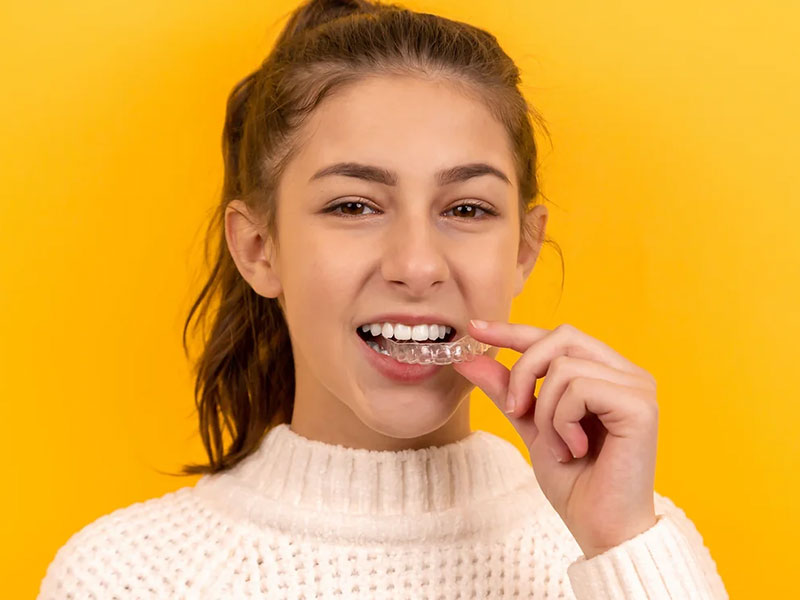What Is Bruxism?

Do you wake up with a stiff jaw? Are your teeth sensitive to cold drinks? If so, you may suffer from bruxism, which is grinding or clenching your teeth during sleep. Bruxism damages healthy teeth and causes tremendous jaw, tooth and facial pain, which can result in costly dental treatment. Interestingly enough, bruxism is hereditary. Around 10% of adults and 15% of children suffer from bruxism. Not only can bruxism damage healthy dentition, but it can also cause headaches, locking of the jaw or TMJ. The symptoms that bruxism causes may appear to be caused by other conditions or health problems. Make sure to visit your local dentist for a proper diagnosis and treatment.
Not only is bruxism known as being hereditary, but it can also be caused by too much stress and specific personality types. People who experience anger, frustration and pain are usually predisposed to bruxism. According to some studies, bruxism can even be caused due to an imbalance in neurotransmitters. Furthermore, it has been proven that some antidepressants such as fluoxetine and paroxetine can lead to bruxism as well.
Thankfully, in a majority of cases bruxism can be treated. One way to treat bruxism is a mouthguard. At your next appointment with your dentist you can ask about the H/S bite splint. The H/S bite splint can significantly improve symptoms in regards to bruxism since it prevents teeth grinding and jaw clenching at night. Also, the H/S bite splint is a thin, customized device that fits over your upper and lower teeth during sleep and is made with soft, comfortable material.
